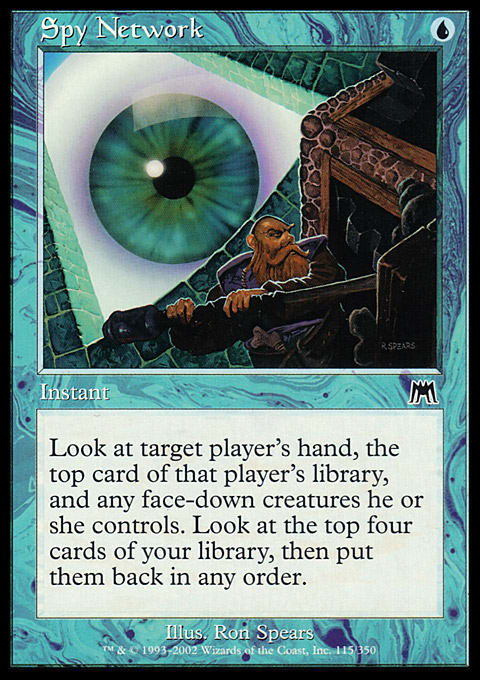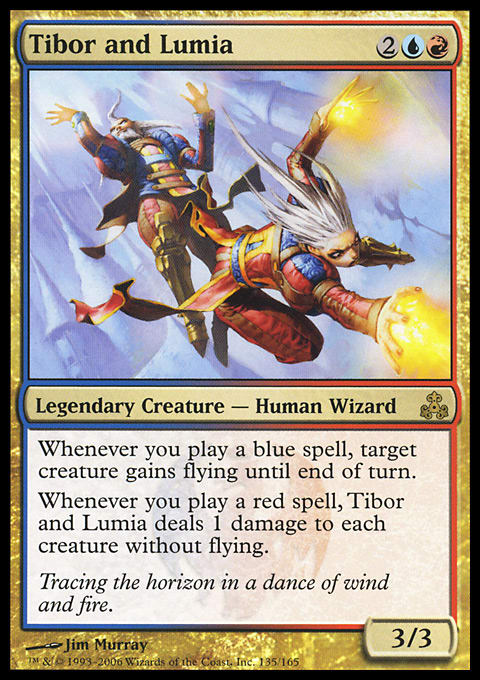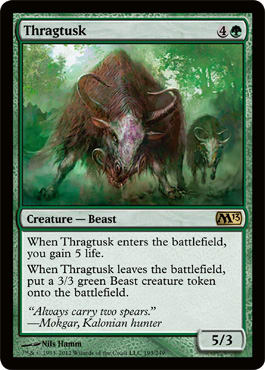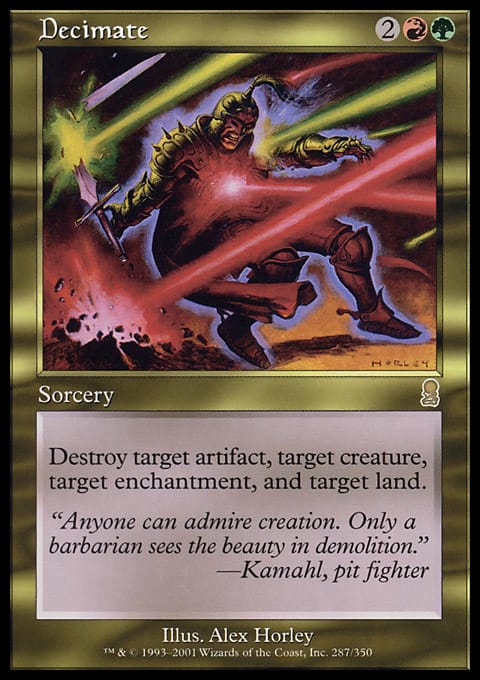This is approximately my hundredth Magic article. That’s about 200,000 words since late 2010. Add to that my 52 baseball articles since 2007, and I’ve written a lot. It’s certainly a surprise to my younger self, the one who thought that writing about fun stuff had to be the greatest thing ever.
After five years of writing analytical nonfiction basically full-time, I have some perspective to help you do the same. I came to this from a different angle than many, so if typical advice hasn’t helped you, maybe mine will.
Tame a Topic
The Internet has given fairly equal opportunities to notice aspiring writers—if you have something to say. For me, this wasn’t about “finding my voice” or anything artistic, but picking an underexplored topic and learning it back to front. At the beginning of 2007, I resolved to have some baseball writing published at a major site. I determined that pinch-running had little data compiled on it, and at the time, the data wasn’t easy to find—you’d have to hand-count instances of pinch-running out of a much larger database. Over the fifty years of data I had, there were tens of thousands of instances for my data. But I knew if I could tame the topic, I’d be pretty much the expert on it.
So I compiled data for a month, making a massive spreadsheet with sundry pinch-running facts and figures. I submitted it without much comment to Baseball Prospectus, who then had current elections guru Nate Silver as one of its leaders. Nate replied with interest and offered a guest article slot. Publication was contingent on demonstrating sufficient writing ability, but the response confirmed that I had achieved my goal: Start at the top with a narrow, well-researched topic.
After publication—of an article popular enough that I still receive a couple of e-mails a year on it—I turned it and a couple more articles there into a column at The Hardball Times, which I maintained from 2008 to 2010. Although other commitments took me away, one of which is now this column, I contribute to their annual book every year.
Everybody has a different take and a different motivation. If you can figure out the new territory in which those intersect, you’ll land somewhere. My first article anywhere was at a major site, and I received a column after four articles, largely through my calculated approach. If you want to produce content but don’t know where to start, look for what isn’t taken (at all or well enough). I chose casual play, a topic some considered passé outside Commander.
My favorite development this year has been on GatheringMagic, with Natasha Lewis Harrington pioneering academic Magic analysis. That was just her melding her Magic knowledge and psychology knowledge to create a new genre of Magic article. Longtime friend of the column Castles and Cooks combines games and food in a thoroughly unique way that I have to assume is loads of fun for its writers.
There’s something Magic writers aren’t covering. I don’t know what it is, but you might when you look.
Involve Yourself Productively
You cannot fake identity, interests, or involvement, but you should broaden all of them. When I was in law school, many people emphasized networking, by which they meant attending social functions with a lot of lawyers who also stressed the importance of networking. That works, but only for people who need that sort of networking to find a job. Networking for its own sake has the inherent limitation of finding only those doing the same thing.
In between Baseball Prospectus and The Hardball Times, I involved myself with the latter by submitting random trivia to several of its authors; some of them were published. When one of them suggested, off an e-mail discussion of his article, that I should write regularly, I had been sufficiently in contact with the decision makers to the point that there was no second thought about giving me a column.
I didn’t submit trivia with an eye toward a column. I sent it in because I liked discovering random things and knew they did too. My interest led to my involvement, which showed my identity. I’ve never asked for a column, but I’ve had three. Engaging others with interesting content is real networking. You can’t fake that, and self-help books won’t improve it, but it has the upside of succeeding.
Get with Good People
This is part of why networking per se doesn’t produce the best outcome; it doesn’t yield compatibility. I wanted to take the momentum from my time in the StarCityGames Talent Search to fill the perceived hole in casual writing, so I got Daryl Bockett and Bruce Richard onboard to start Muse Vessel. I got them on board because I thought they’d be intelligent, stable, harmonious people to work with. I had seen from The Hardball Times how to run a group (and from Baseball Prospectus at that time, how not to run one), and I knew what I wanted.
Daryl, Bruce, and I never argued about a thing in our year running the site, and we continue to bounce articles off each other as though we still ran the site. Whether you start or join an endeavor, your fate is intertwined with your associates. Compatibility is a big deal. Ignore it at your peril.
Learn Writing from Well-Developed Writing Cultures
The rise of competitive Magic has led to top pros becoming well-read writers. Gaming seems to be the only area where the progression occurs so frequently. Actors aren’t writing entertainment magazines; athletes aren’t the famous sportswriters. Writing culture is more specialized and more developed in those endeavors than in Magic. Plus, people have been writing about those for far longer than anyone’s written about Magic.
If your only sense of how to write about Magic comes from Magic articles, returns will eventually diminish. It’s like musicians without influences beyond their generation—all that results is a series of increasingly pale imitations. I learned how to frame and analyze an issue from baseball and law, not Magic. Having acquired those skills outside the game lessens my chances of tunnel vision when writing about the game.
One of the most important things I’ve learned from outside Magic is what parts of a Magic article are space fillers. You can sound like Magic content easily, but to put substance in that content is different. Take, e.g., the following sentences:
“Thragtusk is great because it has an immediate impact by gaining you life, buying you time to stabilize, and leaving a creature behind, letting you trade with another creature or resist board sweepers. A 5/3 does a great job of getting into the red zone as well.”
That’s forty-seven words of rephrasing the card. Of course life-gain buys time, and of course enters-the-battlefield triggers count as immediate impact. Leaves-the-battlefield or death triggers all offer resilience in some form. And 5 power is clearly good size, given that players normally start at 20 life. None of that paragraph on Thragtusk imparts new information. It has a lot of Magic terms in it, but it told you nothing the card plus a basic understanding of Magic didn’t already tell you.
Sports fans will recognize this as the cliché announcer problem. “Well, you gotta get those batters on base to score those runs, and at the end of the day, it’s all about runs. You gotta score ’em; you gotta prevent ’em. Simple. Fundamental. Baseball.” Simple. Overdone. Tripe. The problem’s easy to spot outside Magic, but given the prevalence of similar sentences from every level of Magic player, it’s not as obvious in lingo-heavy game writing.
Having an external frame of reference for your skill set is also important when negative article comments surprise you. I never have developed that thick skin supposedly essential for writers; I suspect after this long it isn’t coming. But there’s enough stuff I’ve done outside this column that, if I write something awful, I don’t overthink myself into despair. If you are prone to glumness after a tough loss in Magic, you likely will have that same problem after a tough rejection or harsh comment on your writing. The big picture perspective that soothes one soothes the other. Develop that along with your writing before writing about Magic. You can develop it on the fly, but it’ll hurt more.
When the Muse Vessel first asked WotC for a Commander preview card, we were told that they hadn’t heard of us but would consider us next time. A month later, they e-mailed, saying they checked out the site, liked our work, and wondered whether we’d like a preview card. That e-mail took half a second to reply to. I am convinced that our external writing perspectives were the clincher. We didn’t read like Magic players who wrote. We read like writers who played Magic. WotC never asked our hit count or anything like that; they saw the content and decided to support it. That’s what good writing can do.
Comprehend Concision as a Means, Not an End
I’ve never taken an English Composition class at any level. But in all honesty, the fact of the matter is that understanding the nature of concision is a thing that is incredibly important to letting your ideas radiate as the dawn of a new, crisp autumn day. In useful words, concision lets your ideas occupy a greater percentage of your writing.
Concision isn’t to be adored per se. Word counts and paragraph limits are rules of thumb, and they should not constrain complex ideas that otherwise would go unexplained. Concision is to clear linguistic rubble off your ideas so you have more time/words to discuss important stuff. The opposite of concise isn’t lengthy; it’s cluttered. No matter the size of your idea, you will maximize reader comprehension if you phrase with the tightest possible language.
I learned this only after years of writing. I kept exploring with large concepts that took a while to explain, and if my article was cluttered, the idea was liable to become lost. So, I adopted my current self-editing practice: After I finish the article, I run through it to see where I can phrase tighter. I normally wring ten to fifteen percent out of my word count before submission.
My two best tips on word wringing:
Verbs and Adjectives Are Capacious. Simple example: Rarely is “I did very well on the test” optimal phrasing. “I aced the test” merges the extra words into the verb. Example within this article: My first draft contained “there will be diminishing returns at some point” instead of “returns will diminish eventually.” I used larger words, but they occupy less page space. If you find yourself frequently constructing sentences with “[blah] is a thing that does this other thing well,” try to condense your meaning and sentences with a verb. Prepositional phrases often can be folded into a verb as well.
You’re Automatically Asserting. By putting forth ideas, you are asserting what you see as fact to the best of your ability. “The fact of the matter” and “in all honesty” are reader-assumed. If you say “in all honesty” once, are you partially honest the rest of the article? The “no, really, I mean it”s of writing serve no purpose given the medium.
These are simple sentence-by-sentence ways of shortening your articles. By themselves, they will take you far.
Try It
Last I heard, the Internet still has some free space. It can accommodate you experimenting with blog posts or articles or podcasts. You can’t ruin Magic or the Internet by trying. Substitute a couple couch-potato television hours with couch-potato article-writing hours. See what happens.
Conclusion
I’m nowhere close to the pantheon of great Magic writers. My quality’s uneven from article to article, I don’t have player credentials as long as my arm, and I’m too insular and willfully obscure to build an accessible brand like Mike Flores and Pat Chapin have.
But I’ve also been in a baseball book with my childhood idol. I’ve interviewed a Cy Young Award winner while he was in the minors. I’ve previewed a mythic rare, and I’ll eventually be on a Wizards flavor team. Whether directly or indirectly, writing has created and opened many doors and I’ve enjoyed going through all of them. If you think you have something to contribute there’s no reason you can’t have as much fun as I’ve had.
I wouldn’t recommend being the next me—it’s a dark and scary place—but you’re the first you, so leverage that into something fun in 2013.



























